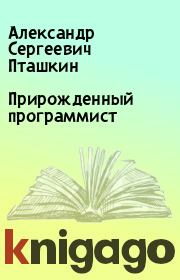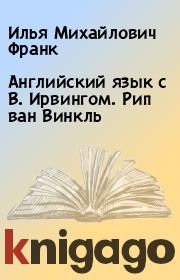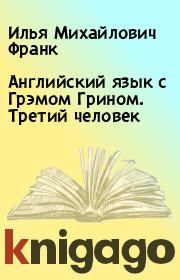Илья Михайлович Франк - Английский язык c дружелюбным скелетом. Легенды североамериканских индейцев
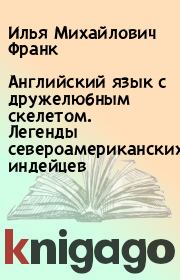 | Название: | Английский язык c дружелюбным скелетом. Легенды североамериканских индейцев |
Автор: | Илья Михайлович Франк | |
Жанр: | Языкознание | |
Изадано в серии: | неизвестно | |
Издательство: | неизвестно | |
Год издания: | - | |
ISBN: | неизвестно | |
Отзывы: | Комментировать | |
Рейтинг: | ||
Поделись книгой с друзьями! Помощь сайту: донат на оплату сервера | ||
Краткое содержание книги "Английский язык c дружелюбным скелетом. Легенды североамериканских индейцев"
Аннотация к этой книге отсутствует.
Читаем онлайн "Английский язык c дружелюбным скелетом. Легенды североамериканских индейцев" (ознакомительный отрывок). Главная страница.
- 1
- 2
- 3
- . . .
- последняя (4) »
Английский язык c дружелюбным скелетом
Легенды североамериканских индейцев
North American Indian Legends
Книгу адаптировала Людмила Жебрунова
Метод чтения Ильи Франка
The Bear Man (Человек-Медведь)
A man went hunting in the mountains (человек пошел охотиться в горы; to go hunting) and came across a black bear (и набрел на черного медведя; to come across — набрести; across — поперек; в ширину; на ту сторону; на той стороне; напротив; cross — крест), which he wounded with an arrow (которого он ранил стрелой). The bear turned and started to run the other way (медведь повернулся и начал убегать в другую/противоположную сторону), and the hunter followed (а охотник последовал /за ним/), shooting one arrow after another into it (выпуская одну стрелу за другой в него; to shoot — стрелять) without bringing it down (/так и/ не подстрелив его; to bring down — подстрелить). Now, this was a medicine bear (так вот, это был волшебный медведь), and could talk or read the thoughts of people (и /он/ мог говорить или читать мысли людей) without their saying a word (/даже если/ они не произносили ни слова).
mountains [`mauntInz], across [q`krOs], wound [wHnd], turn [tWn]
A man went hunting in the mountains and came across a black bear, which he wounded with an arrow. The bear turned and started to run the other way, and the hunter followed, shooting one arrow after another into it without bringing it down. Now, this was a medicine bear, and could talk or read the thoughts of people without their saying a word.
At last he stopped (наконец он остановился) and pulled the arrows out of his side (и вытащил стрелы из своего бока) and gave them to the man (и отдал их человеку), saying (говоря), "It is of no use for you to shoot at me (нет никакой пользы тебе стрелять в меня), for you can not kill me (ибо ты не можешь убить меня). Come to my house and let us live together (пойдем в мой дом и давай жить вместе)." The hunter thought to himself (охотник подумал про себя), "He may kill me (он может убить меня)"; but the bear read his thoughts and said (но медведь прочитал его мысли и сказал), "No, I won't hurt you (нет, я не причиню тебе боли/вреда; to hurt — причинить боль; ранить; ушибить)." The man thought again (мужчина подумал снова), "How can I get anything to eat (как я смогу достать что-либо поесть = достать себе пропитание)?" but the bear knew his thoughts (медведь знал его мысли), and said, "There shall be plenty (там будет довольно/достаточно; plenty — обилие)." So the hunter went with the bear (тогда охотник пошел с медведем).
pull [pul], arrow [`xrqu], shoot [SHt], hurt [hWt], read /прош. вр./ [red], hunter [`hAntq]
At last he stopped and pulled the arrows out of his side and gave them to the man, saying, "It is of no use for you to shoot at me, for you can not kill me. Come to my house and let us live together." The hunter thought to himself, "He may kill me"; but the bear read his thoughts and said, "No, I won't hurt you." The man thought again, "How can I get anything to eat?" but the bear knew his thoughts, and said, "There shall be plenty." So the hunter went with the bear.
They went on together (они шли вместе; to go on — идти дальше, продолжать идти) until they came to a hole in the side of the mountain (пока не пришли к пещере/берлоге в склоне горы; side — край, сторона), and the bear said (и медведь сказал), "This is not where I live (это не /то место/, где я живу), but there is going to be a council here (но здесь будет проходить совет) and we will see what they do (и мы посмотрим, что они сделают)." They went in (они вошли), and the hole widened as they went (и пещера расширялась по мере продвижения внутрь: «когда они шли/продвигались»), until they came to a large cave (пока они не добрались до большой пещеры) like a townhouse (как городской дом). It was full of bears (он был полон медведей) — old bears (старых медведей), young bears (молодых медведей), and cubs (и детенышей), white bears (белых медведей), black bears (черных медведей), and brown bears (и бурых медведей) — and a large white bear was the chief (и большой белый медведь был главным/старшим).
council [kaunsl], widen [waIdn], cave [keIv]
They went on together until they came to a hole in the side of the mountain, and the bear said, "This is not where I live, but there is going to be a council here and we will see what they do." They went in, and the hole widened as they went, until they came to a large cave like a townhouse. It was full of bears-old bears, young bears, and cubs, white bears, black bears, and brown bears—and a large white bear was the chief.
They sat down in a corner (они уселись в углу), but soon the bears scented the hunter (но вскоре медведи учуяли охотника) and began to ask (и начали спрашивать), "What is it (что это) that smells bad (что так воняет: «дурно пахнет»)?" The chief said (вождь сказал), "Don't talk so (не говорите так); it is only a stranger come to see us (это просто чужак пришел увидеть нас = к нам в гости; to come to see — навестить). Let him alone (оставьте его одного = в покое)."
down [daun], talk [tLk], so [squ], alone [q`lqun]
They sat down in a corner, but soon the bears scented the hunter and began to ask, "What is it that smells bad?" The chief said, "Don't talk so; it is only a stranger come to see us. Let him alone."
Food was getting scarce in the mountains (пропитание становилось скудным в горах), and the council was to decide (и совет должен быть решить) what to do about it (что делать с этим: «насчет этого»). They had sent out messengers all over (они разослали посыльных повсюду), and while they were talking (и пока они беседовали) two bears came in and reported (два медведя вошли и сообщили) that they had found a country in the low grounds (что они
--">- 1
- 2
- 3
- . . .
- последняя (4) »
Книги схожие с «Английский язык c дружелюбным скелетом. Легенды североамериканских индейцев» по жанру, серии, автору или названию:
 |
| Илья Михайлович Франк - Прыжок через быка Жанр: Культурология и этнография Год издания: 2020 |
 |
| Николай Иннокентьевич Колотовкин - Учебник латинского языка для высших духовных учебных заведений Жанр: Языкознание Год издания: 2000 |
 |
| В Г Зарубин, Александр Георгиевич Зарубин - Сказки и легенды крымских татар Жанр: Сказки для детей Год издания: 1991 |
Другие книги автора «Илья Франк»:
 |
| Илья Михайлович Франк - Английский язык с Шерлоком Холмсом. Первый сборник рассказов (ASCII-IPA) Жанр: Языкознание Серия: Метод обучающего чтения Ильи Франка |
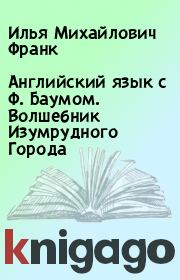 |
| Илья Михайлович Франк - Английский язык с Ф. Баумом. Волшебник Изумрудного Города Жанр: Языкознание Год издания: 2008 |

